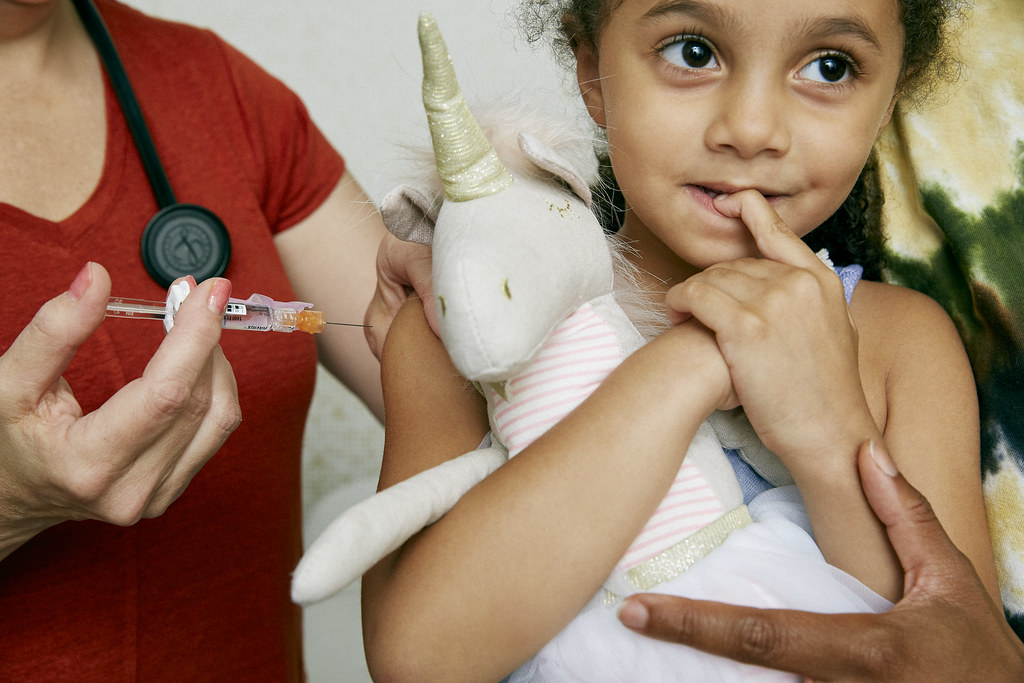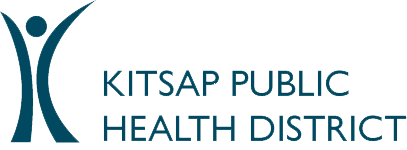
BE AWARE several states, including Washington, have recently experienced local measles activity.
Since the beginning of 2024 there have been nine measles cases reported in Washington state, including a cluster of eight cases in Clark and Wahkiakum Counties in January and a travel-associated case with multiple public exposures reported on February 21 in Spokane County.
Nationwide, 36 measles cases have been reported since the start of 2024. Additionally, the World Health Organization (WHO) has reported a 79% increase in global measles cases from 2022 to the 2023.
CONSIDER measles infection in patients who:
- Present with a febrile rash illness and cough, coryza (runny nose) or conjunctivitis (pink eye);
- Generalized maculopapular rash tends to begin on the face at the hairline and then spreads to the neck, trunk, and extremities (see CDC photo library);
- Non-rash symptoms generally precede rash onset by 2-4 days;
- Koplik spots may appear on buccal mucosa 1-2 days prior to rash (absence of Koplik spots does not rule out measles);
- Report recent travel to an area with current measles activity, or exposure to a confirmed or suspected measles case.
Patients are typically infectious 4 days prior to onset of rash to 4 days after rash.
IF YOU SUSPECT MEASLES IN A PATIENT:
- IMMEDIATELY REPORT suspected measles cases to Public Health. Call Kitsap Public Health 24/7 at (360) 728-2235 during clinical encounter with a suspected measles case.
- Mask and isolate the patient (in airborne infection isolation room (AIIR) when possible).
- Use the Washington State Department of Health Measles Assessment Quicksheet for Providers to evaluate the case and to ensure that necessary public health and infection prevention steps are followed.
- Collect specimens for diagnostic testing and route through Public Health.
- Specimens should be sent to Washington Public Health Laboratory (PHL); diagnostic testing should not be sent to a commercial library. Call Kitsap Public Health 24/7 to coordinate specimen transport and testing with the state laboratory.
- The following specimens should be collected:
| Specimen type | Collection | Test method |
| Nasopharyngeal swab | Dacron™ or rayon swab in viral transport media (VTM) | Polymerase chain reaction (PCR) |
| Urine (minimum 20 mL) | Sterile, leak-proof container | Polymerase chain reaction (PCR) |
| Serum (minimum 1 mL)-or-Whole blood (minimum 4 mL) | Sterile tube (serum)Red top or red-grey top (tiger top) tube | Immunoglobulin M (IgM) serology |
- Additional information on collection and shipment of measles specimens can be found in the Washington Public Health Laboratory Measles Specimen Shipping Guide.
ASSESS immunization status of patients at every visit and strongly recommend vaccination based on the recommended schedule, especially before international travel.
People 6 months of age or older who will be traveling internationally should be vaccinated against measles. Under-vaccinated individuals may be at increased risk for measles infection due to outbreaks occurring in the U.S. or internationally.
CONFIRM the vaccination status of your staff, students, and volunteers.
REVIEW your plan to manage rash illnesses in your facility with staff members/volunteers to prevent exposures:
- When scheduling appointments by phone for persons with signs or symptoms of measles, provide instructions for arrival, including which entrance to use and the precautions to take, and inform staff/volunteers.
- If measles is suspected, patients should wear a mask covering the nose and mouth and be triaged immediately away from waiting rooms.
- Use standard and airborne infection control precautions.
- Immediately place patient in a private room (airborne infection isolation room (AIIR) if possible) and keep the door closed.
- Only staff with documented immunity to measles should enter patient’s room.
- Evaluate patient as quickly as possible. If measles is suspected, notify Public Health immediately.
- After patient is discharged, do not use or have staff enter the room for 2 hours.
- For more information see the Interim Measles Infection Prevention Recommendations in Healthcare Settings | CDC
BACKGROUND
Between January 1 and February 22, 2024, there were a total of 35 measles cases reported in 15 U.S. jurisdictions including Arizona, California, Florida, Georgia, Indiana, Louisiana, Maryland, Minnesota, Missouri, New Jersey, New York City, Ohio, Pennsylvania, Virginia, and Washington.
This includes a cluster of eight cases reported in Clark and Wahkiakum Counties in January, and a recent case in Spokane County with multiple public exposures identified. Additional recent or current U.S. outbreaks include the Philadelphia area (nine cases) and Florida (10 cases).
WHO has also recently reported a 79% increase in global measles cases in 2023, increasing the risk of exposure for international travelers. The majority of recent cases have been reported in the European, East Mediterranean, and Southeast Asia regions. WHO also continues to report decreased measles vaccine coverage globally following disruptions to vaccine delivery during the COVID-19 pandemic.
Measles transmission in the U.S. tends to be associated with international travelers exposed to measles while abroad, and with subsequent further spread in the U.S. in communities with pockets of unvaccinated people. Between 2001 and May 2019, around 20% of reported measles cases in the U.S. were associated with recent international travel, while 80% were acquired in the U.S. Nearly 90% of cases reported since 2001 have been unvaccinated or have had unknown vaccination status.
Differential diagnoses for measles include parvovirus, dengue, Kawasaki disease, varicella, syphilis, and scarlet fever.
CDC recommends routine childhood immunization for MMR vaccine starting with the first dose at 12 through 15 months of age, and the second dose at four through six years of age or at least 28 days following the first dose. Additionally, infants 6 through 11 months of age with planned international travel should receive one dose of MMR vaccine because of increased risk of exposure.
The MMR vaccine is 93% effective against measles after one dose, and 97% effective after two doses.
MORE RESOURCES
National
- CDC’s Measles information for healthcare providers
- CDC’s Infection Prevention recommendations for measles in healthcare settings
- CDC’s Global measles outbreak information
- CDC’s Talking to parents about vaccines
- CDC’s MMR ACIP Vaccine Recommendations
- CDC’s Measles, Mumps and Rubella (MMR) vaccination: What everyone should know
- CDC’s MMR VIS (2021) | MMRV VIS (2021)
- CDC’s Travel vaccine assessment tool
State
- DOH’s Measles Resources
- DOH’s Managing Measles Exposures in Healthcare Workers
- DOH’s Measles specimen collection and shipping guidance
- Tacoma-Pierce County Health Department’s Health Advisory: Measles Outbreak in Southwest Washington
- Spokane Regional Health District’s Measles Case Identified in Spokane County
CONTACTING THE HEALTH DISTRICT
Call us at 360-728-2235 and you will be routed to the appropriate program. Includes reporting notifiable conditions 24 hours a day, 7 days a week.
This advisory is also posted on the health advisory page of our Provider Resources website, providers.kitsappublichealth.org.
